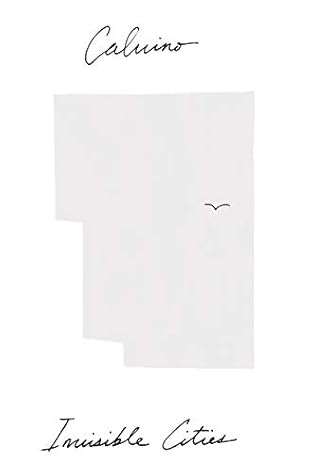More on this book
Community
Kindle Notes & Highlights
When a man rides a long time through wild regions he feels the desire for a city.
where the foreigner hesitating between two women always encounters a third,
city appears to you as a whole where no desire is lost and of which you are a part, and since it enjoys everything you do not enjoy, you can do nothing but inhabit this desire and be content.
The city is redundant: it repeats itself so that something will stick in the mind.
Memory is redundant: it repeats signs so that the city can begin to exist.
the more one was lost in unfamiliar quarters of distant cities, the more one understood the other cities he had crossed to arrive there;
the traveler’s past changes according to the route he has followed: not the immediate past, that is, to which each day that goes by adds a day, but the more remote past. Arriving at each new city, the traveler finds again a past of his that he did not know he had: the foreignness of what you no longer are or no longer possess lies in wait for you in foreign, unpossessed places.
Marco enters a city; he sees someone in a square living a life or an instant that could be his; he could now be in that man’s place, if he had stopped in time, long ago; or if, long ago, at a crossroads, instead of taking one road he had taken the opposite one, and after long wandering he had come to be in the place of that man in that square.
he must go on to another city, where another of his pasts awaits him, or something perhaps that had been a possible future of his and is now someone else’s present. Futures not achieved are only branches of the past: dead branches.
“Journeys to relive your past?” was the Khan’s question at this point, a question which could also have been formulated: “Journeys to recover your future?” And Marco’s answer was: “Elsewhere is a negative mirror. The traveler recognizes the little tha...
This highlight has been truncated due to consecutive passage length restrictions.
as soon as the stranger arrives at the unknown city and his eye penetrates the pine cone of pagodas and garrets and haymows, following the scrawl of canals, gardens, rubbish heaps, he immediately distinguishes which are the princes’ palaces, the high priests’ temples, the tavern, the prison, the slum. This—some say—confirms the hypothesis that each man bears in his mind a city made only of differences, a city without figures and without form, and the individual cities fill it up.
Cities, like dreams, are made of desires and fears, even if the thread of their discourse is secret, their rules are absurd, their perspectives deceitful, and everything conceals something else.”
they arranged spaces and walls differently from the dream, so she would be unable to escape again.
This was the city of Zobeide, where they settled, waiting for that scene to be repeated one night. None of them, asleep or awake, ever saw the woman again. The city’s streets were streets where they went to work every day, with no link any more to the dreamed chase. Which, for that matter, had long been forgotten.
they changed the positions of arcades and stairways to resemble more closely the path of the pursued woman and so, at the spot where she had vanished, there would remain no avenue of escape. The first to arrive could not understand what drew these people to Zobeide, this ugly city, this trap.
each of their actions is, at once, that action and its mirror-image, which possesses the special dignity of images, and this awareness prevents them from succumbing for a single moment to chance and forgetfulness.
Even when lovers twist their naked bodies, skin against skin, seeking the position that will give one the most pleasure in the other, even when murderers plunge the knife into the black veins of the neck and more clotted blood pours out the more they press the blade that slips between the tendons, it is not so much their copulating or murdering that matters as the copulating or murdering of the images, limpid and cold in the mirror.
At times the mirror increases a thing’s value, at...
This highlight has been truncated due to consecutive passage length restrictions.
Many are the cities like Phyllis, which elude the gaze of all, except the man who catches them by surprise.
“I speak and speak,” Marco says, “but the listener retains only the words he is expecting.
It is not the voice that commands the story: it is the ear.”
while I am prisoner of a gaudy and unlivable present, when all forms of human society have reached an extreme of their cycle and there is no imagining what new forms they may assume. And I hear, from your voice, the invisible reasons which make cities live, through which perhaps, once dead, they will come to life again.”
am the opposite of you,” I said. “I recognize only cities and cannot distinguish what is outside them. In
The question that now begins to gnaw at your mind is more anguished: outside Penthesilea does an outside exist? Or, no matter how far you go from the city, will you only pass from one limbo to another, never managing to leave it?
“The inferno of the living is not something that will be; if there is one, it is what is already here, the inferno where we live every day,


